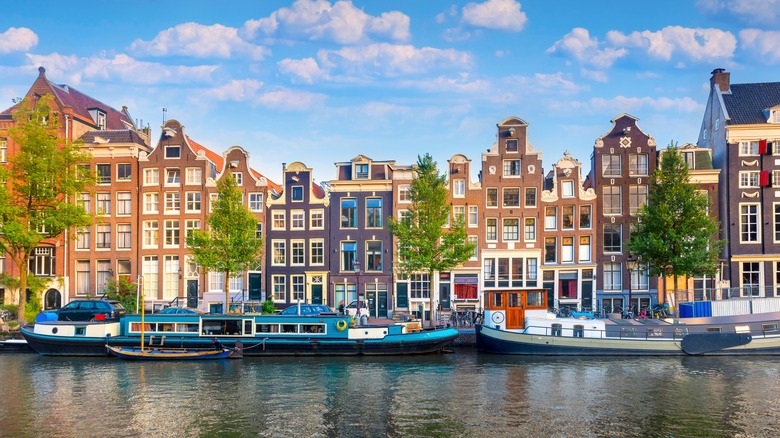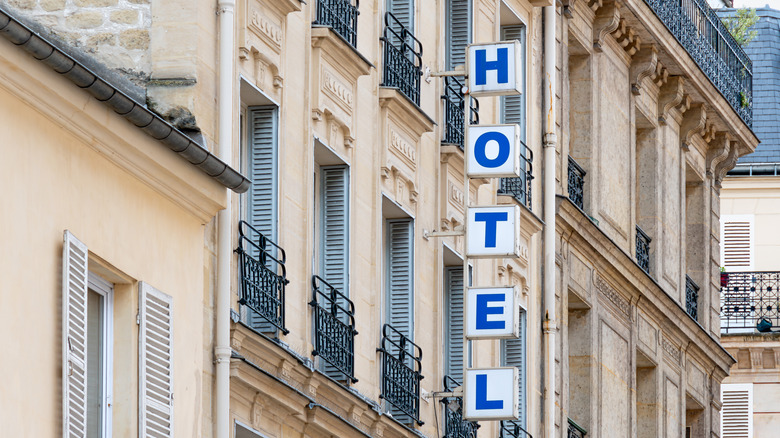This Will Be Your Biggest Budget Challenge While In Europe, According To Rick Steves
Who hasn't fantasized about wandering Europe's fabled cobblestone streets, tossing a coin into Rome's Trevi Fountain and exploring the Roman Colosseum, savoring a croissant beneath Paris's Eiffel Tower? Dreams of strolling Amsterdam's misty canals, exploring the ancient ruins of Athens, or basking on a sun-soaked Mediterranean beach are common. These iconic experiences fuel countless travel dreams, promising rich culture, history, and novelty. Yet, the reality of European travel often comes with a steep price tag that can turn dreams into nightmares. High costs for everything from meals to museums deter many would-be adventurers, making Europe feel like a luxury reserved for the few.
The European Travel Commission, alongside Eurail BV, reported a noticeable slow down in global travel to Europe for 2025, particularly among Americans. The primary culprit? Affordability. Rising costs across the continent, felt by tourists and locals alike, have curbed enthusiasm, with less and less people willing to splurge on these transatlantic journeys in comparison to previous years. As travelers are seeking destinations offering similar cultural richness without draining their wallets, Europe risks losing its competitiveness.
Enter Rick Steves, beloved travel guru, whose guidebooks and TV shows champion budget-friendly exploration. Steves pinpoints accommodations as the single biggest budget hurdle for European travelers. With hotels often commanding premium prices, especially in peak seasons, how can savvy visitors secure affordable places to lay their heads while still embracing Europe's magic?
Finding budget accommodations in Europe
Steves encourages travelers to embrace the unexpected, recounting tales of bartering and playing games for a room over a lively round of pentanque in France, or backgammon in Greece. Such spirited exchanges not only cut costs, but can weave memorable experiences into your trip. More practically, Steves urges travelers to consider hostels, which aren't just a thing for young backpackers. Many hostels offer private rooms at a fraction of hotel prices, and a perfect opportunity for solo travelers to connect with each other. Choosing stays that provide only what you need is also key: skip the lavish hotels with amenities like pools and spas that you might not use. Instead, prioritize location and functionality to maximize your exploration within your budget.
Don't shy away from asking for the cheapest room, Steves advises. Prices vary within the same hotel, and rooms with shared bathrooms or smaller beds can often save significant amounts of euros. Smaller guesthouses often have no-frills rooms, sometimes without private bathrooms, dropping costs by up to almost $20 a night. Traveling in a small group? Share a triple or quad room to split expenses. Hotels will often give you a cot to squeeze in and save more.
Steves also recommends scouring discount search engines like HotelsCombined, Trivago, or EuroCheapo for deals, and budget chains like EasyHotel. For the bold, Couchsurfing connects travelers with locals offering free stays, who also often share insider tips on the best of the best within the city. Steves' son recommends engaging with Workaway, a cultural exchange program that offers free accommodation in return for various duties while staying. If you're looking for a deeper dive into the culture and a longer stay, this might be a great fit.
Other options for making Europe more affordable
Beyond accommodations, smart choices can stretch your wallet further. Picnicking is a favorite among many European budget travel gurus, Steves included. Grab some fresh bread, cheese, and fruit from a local market, or from delis for a cheap and scenic meal in the park. It's great for saving money and for people watching. Eating like a local at street vendors or mom-and-pop eateries saves money and offers authentic flavors to the region. A Eurail pass, covering train travel across 33 different countries, can provide flexibility and savings for a multi-city trip, avoiding often pricey individual tickets. It's best to use Eurail for longer trips throughout Europe. Public transport, like buses or trams, is another cost-cutter, letting you navigate cities affordably while soaking in daily life like a local.
Free walking tours, available in most major cities, allows visitors a budget-friendly way to explore iconic landmarks and delve into history, while meeting fellow travelers and getting a lay of the land. Traveling during the off-season — October through April in Europe —allows visitors to experience an area without the crowds, brings cheaper air fares, cheaper accommodations, more authentic interactions with locals and Europeans than tourists. Planning ahead can keep more in your wallet too. By planning ahead travelers can lock in lower prices for flights and accommodations, and prevent last=minute bookings, which are often costly and leave travelers with few options. Bringing a reusable water bottle taps into Europe's safe drinking water, cuts down on single-use plastic, and the cost that coincides with buying water. Limiting alcohol consumption can significantly keep expenses down and free up funds for cultural experiences.


